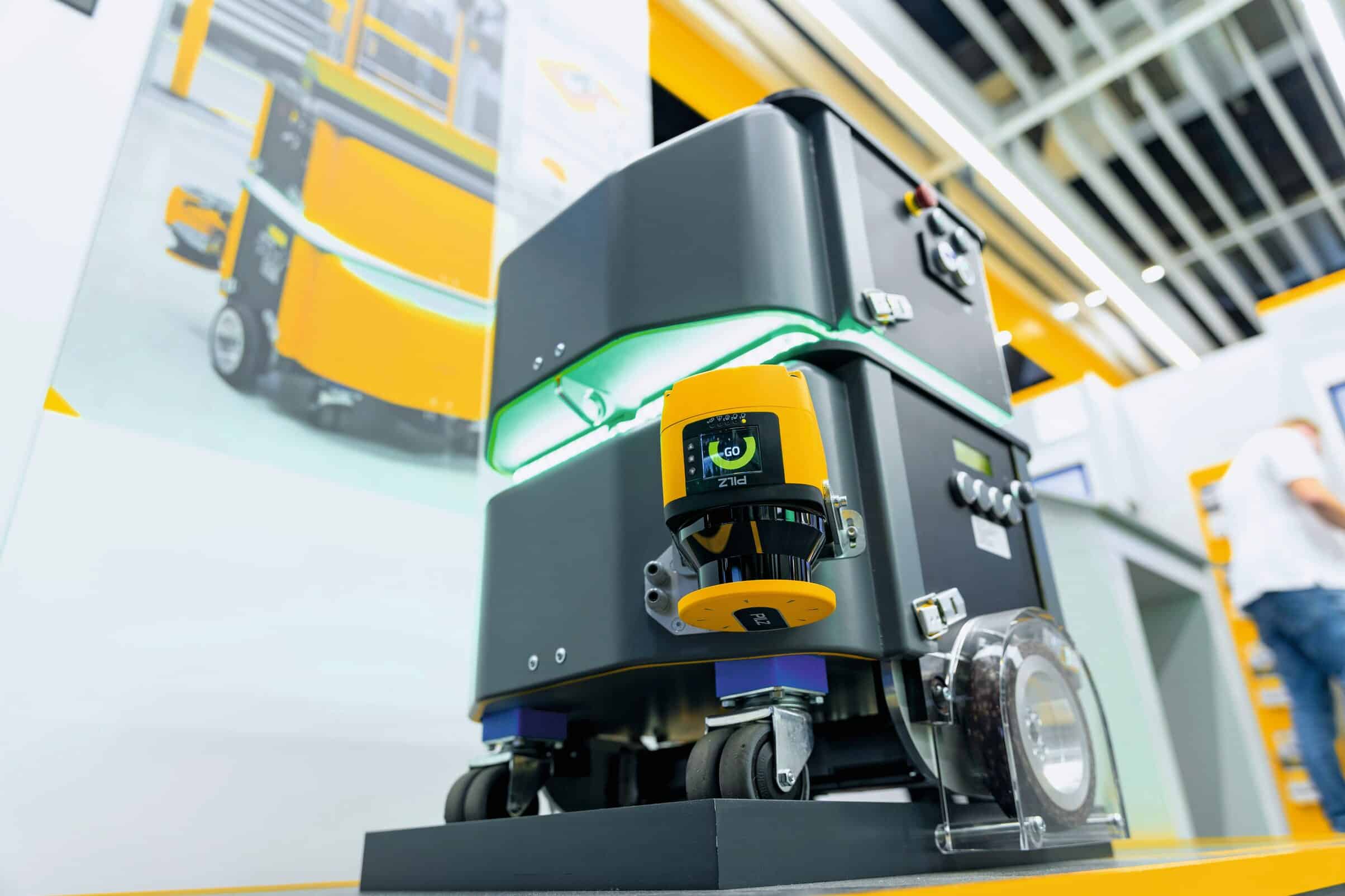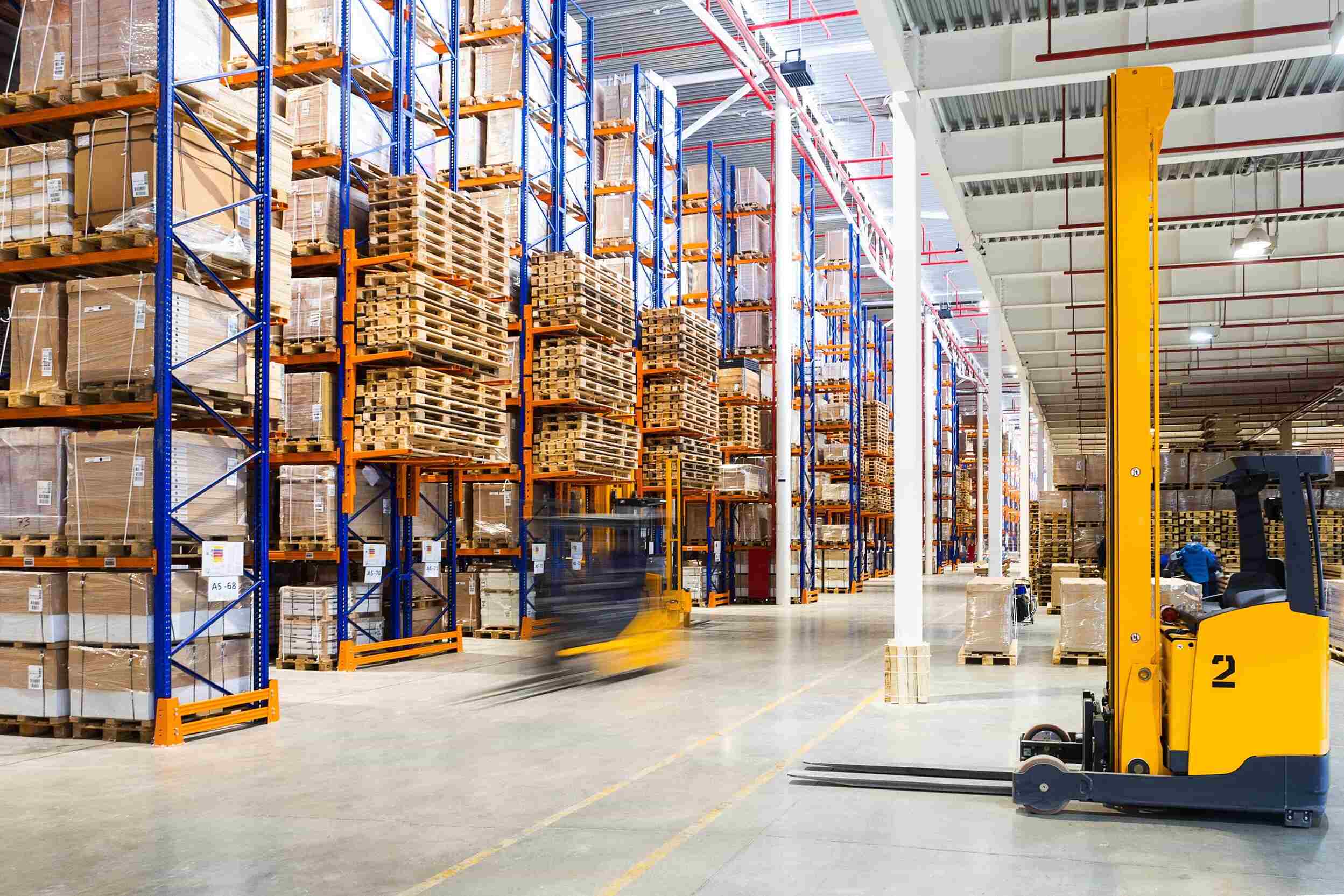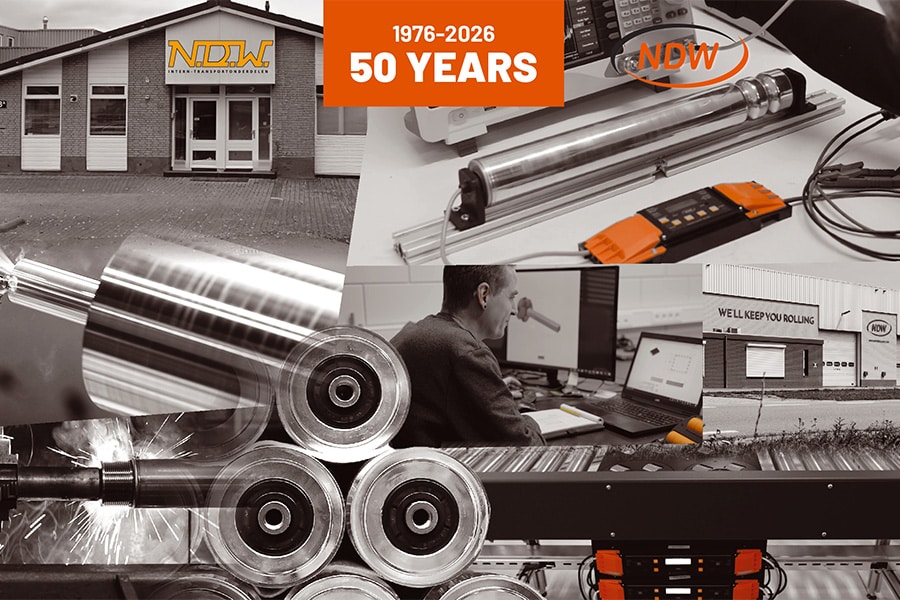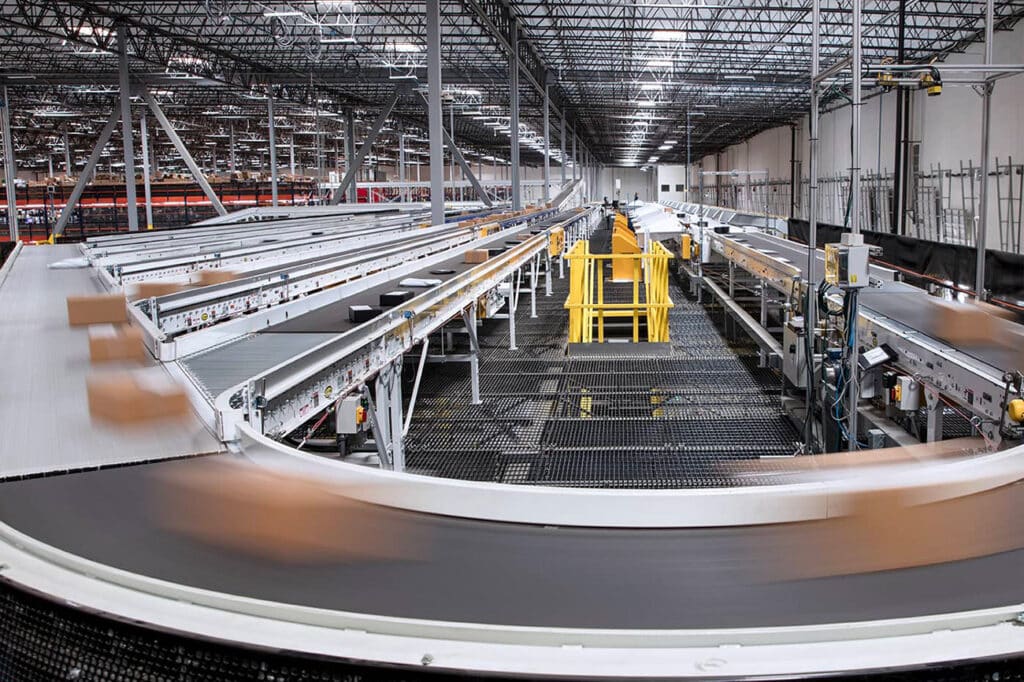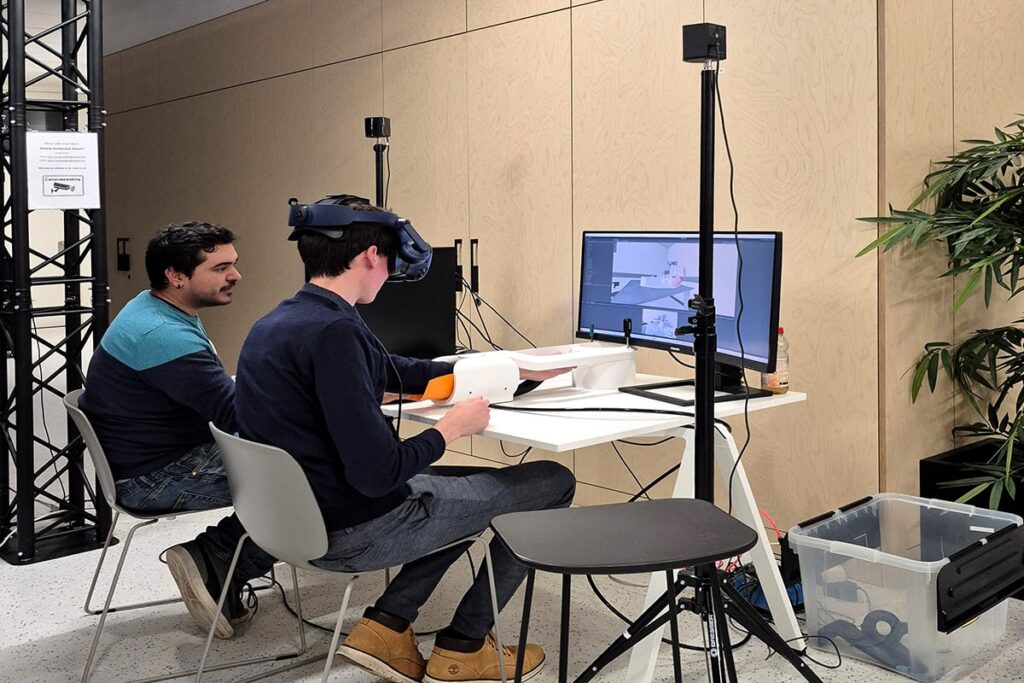
TETRA VEooX project: digital twins in logistics and manufacturing
What if you could virtually recreate an operating environment to cost-effectively run different scenarios on it without impacting your current production and logistics? That, in a nutshell, is the goal of the TETRA VEooX project, an initiative of FlandersMake@UGent - ISyE and HOWEST University of Applied Sciences. During the kick-off event, UGent professor Johannes Cottyn and HOWEST researcher Charlotte Larmuseau explained why you as a company should get involved in this project.
On Thursday, November 7, the kick-off of the TETRA VEooX project took place in Kortrijk. The TETRA program is a VLAIO initiative for practice-based research. The goal? To facilitate technology-driven knowledge transfer between colleges and universities on the one hand and companies and non-profit organizations on the other. The VEooX project is a collaboration between FlandersMake@UGent - ISyE and HOWEST University of Applied Sciences. Companies such as Daikin, Actemium, Engico, Dewilde engineering, Vandewiele, Octoo, Pattyn, Talumis and Vintiv signed present.
With VEooX, a fusion of virtual engineering and user experience, the researchers want to deploy digital tools to virtually mimic the physical reality of production and logistics environments and (re)design, control and/or optimize them. In doing so, the project aims to deploy digital twins, virtual prototyping and virtual training in the manufacturing industry to launch innovations, techniques and products without impacting existing processes. As a company, you can participate in this project, serving on the user committee to provide input and feedback, and possibly launching a case of your own.
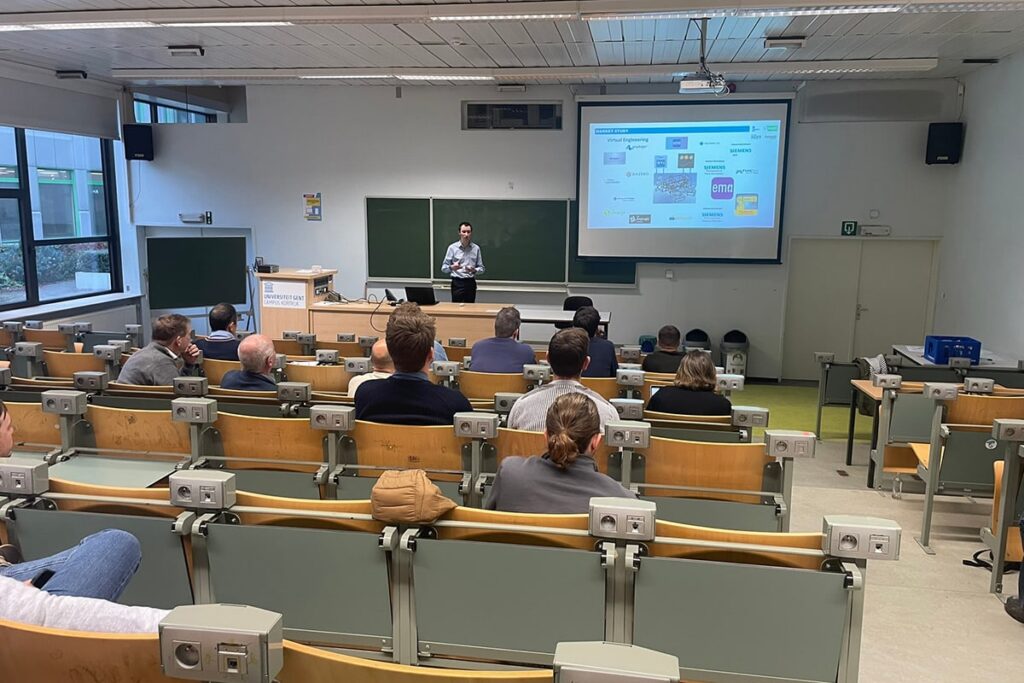
Synergy between engineering and experience
During the kick-off, professor of industrial automation at UGent and head of the Manufacturing Knowledge and Automation Engineering competency domain at FlandersMake@UGent - ISyE Johannes Cottyn took us through the ambitions of TETRA VEooX. This project brings together two domains, virtual engineering and virtual user experience. The first includes the use of 3D models to dimension and virtually commission a production process. The second component allows employees to easily go through realistic production situations linked to their job in a 3D environment. Both areas are interesting in their own right, but the synergy between them is what puts VEooX on the map.
The use of virtual engineering platforms within manufacturing and logistics offers many opportunities, but at the same time comes with a series of challenges. One is choosing, setting up and maintaining the right tool. Another is that it requires human interaction to test out scenarios. This is not available in most tools today. Then again, virtual experience platforms need a huge level of detail to work out realistic logistics and/or production scenarios. VEooX's ambition is to bring both methods together for a more effective and cost-efficient result.
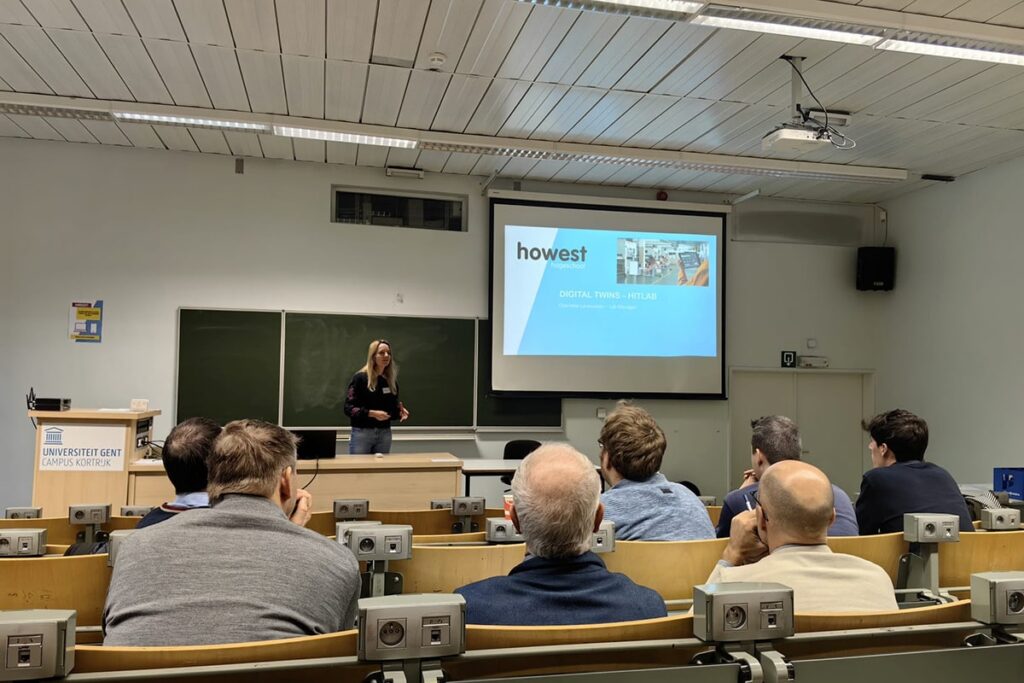
Detailed market study
Although the VEooX project was only recently launched, the team already conducted a market study of available software tools for virtual engineering and experience. Postdoctoral researcher at UGent Matthias Schamp explained how the team classified sixteen tools according to some 50 criteria and then gave them a ranking. This comparative overview has been compiled in an online database, accessible to the members of the user committee. The database will be further expanded to include other tools and/or additional vendor data.
Human factor simulation
HOWEST researcher Charlotte Larmuseau demonstrated the usefulness of user experience applications to gather feedback on virtual prototypes, without the high development costs of a real prototype. At the same time, they allow human actions to be integrated into test scenarios, such as around safety and ergonomics, in engineering projects. Engineering tools, in turn, help create scenarios for different types of employees in a cost- and time-efficient manner. In addition to bringing standard workflows and building out a test environment, the VEooX project supports interested companies with the guidance and documentation of an industrial case. VEooX targets manufacturing companies, machine builders and system integrators. The focus is on SMEs, as well as technology suppliers and consulting companies of simulation and emulation tools and AR/VR applications. The project runs from Oct. 1, 2024, to Sept. 30, 2026. For more information, visit the ISyE website.
